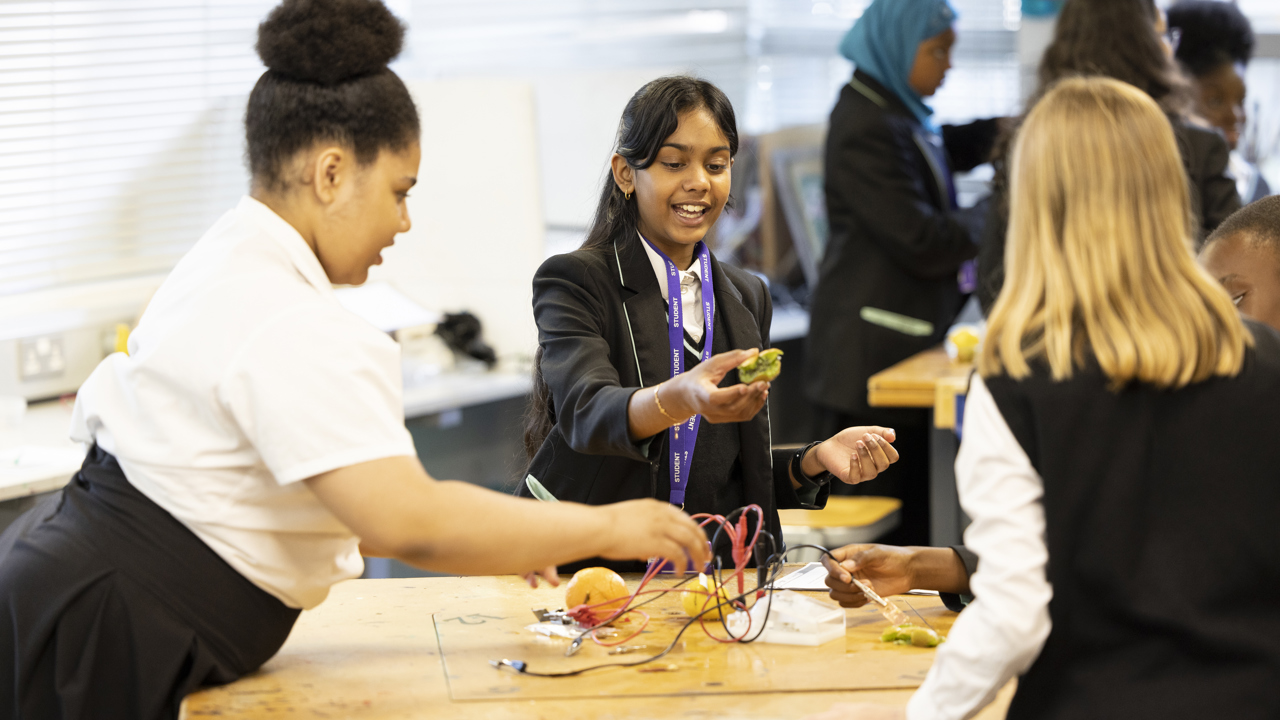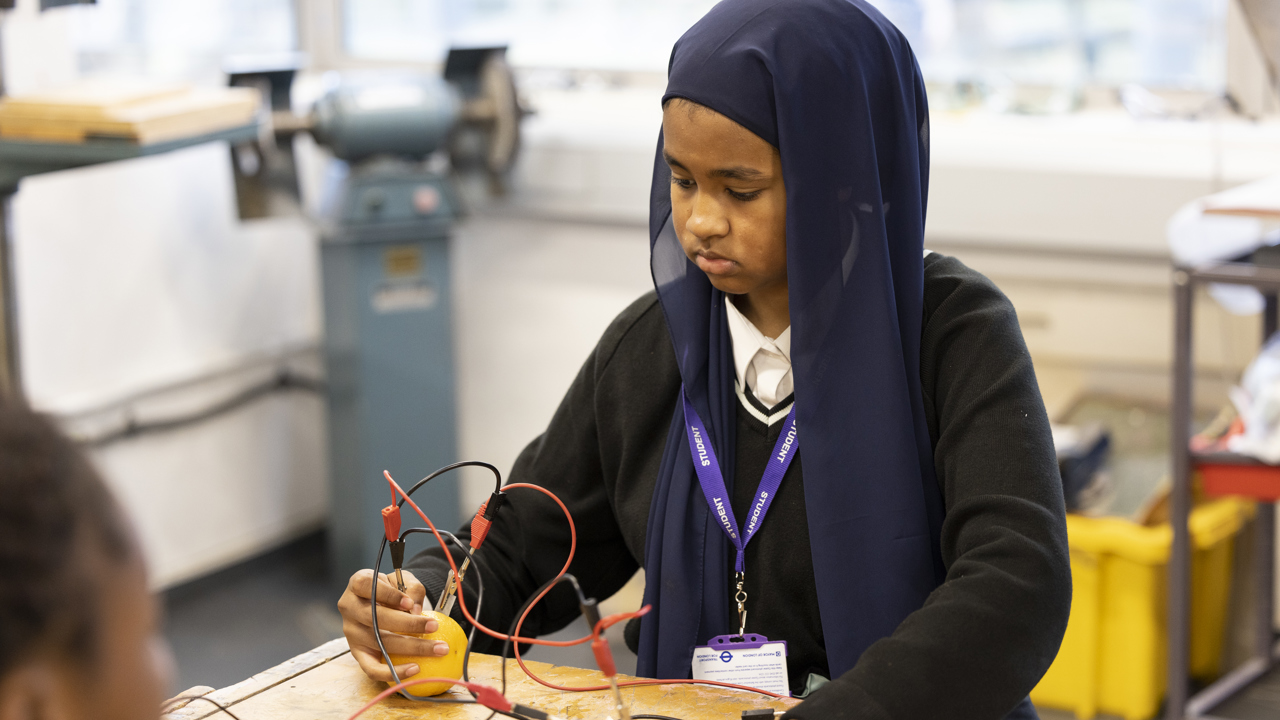
Overview
Like many STEM outreach organisations, EngineeringUK co-designs a wide range of programmes and activities that use various delivery models. This report examines our ‘teacher-led’ activities, reflecting on the range of methods we employ across these and what our evaluations suggest works well.
We draw upon EngineeringUK’s evaluation findings from multiple programmes and activities across the last 3 years. The report focuses on the process and impact of outreach delivery, from teachers’ decision to participate through to benefits for students. We use examples of teachers’ experiences to highlight what works well from their perspective and, therefore, what STEM outreach organisations could strive to provide.
Lessons learned from EngineeringUK programme evaluations
Publication date
June 2025
Who this is for
- Careers leads
- PEIs
- Researchers
- STEM outreach organisations
- Teachers
Key Findings
- teachers play vital leadership and management roles in our STEM outreach programmes, so it is useful to think beyond the binary teacher- or facilitator-led
- teachers’ decision to participate depended on the specific topic, quality of resources, cost and permission from senior colleagues
- The main factors for success were:
- including content that was highly valued but teachers were less familiar with
- linking content to the curriculum, such as drawing connections between climate solutions, engineering and problem-solving
- building resources that were time-efficient for teachers, come fully developed yet adaptable and accompanied by concise teacher guidance
- teacher-led programmes and activities worked well for teachers who were experienced and felt confident trying something new
- while facilitators offer providers predictable reach figures and more standardised delivery, they are expensive for outreach organisations to supply
- on one hand, facilitators are effective because they bring valuable external expertise and offer students a novel experience. On the other hand, teacher-led approaches are effective because they’re delivered by someone who knows the students well
- teacher-led approaches also have the potential to be embedded into current practice, expanding the number of outreach experiences students are exposed to and promoting sustained engagement
By learning what makes teacher-led delivery successful, we can improve our resources to better support educators and improve student engagement. Understanding the challenges and what works well not only helps us reflect on our own programmes and activities, but also helps the STEM outreach sector create more flexible and effective materials to continue to inspire and educate young people.
— Amanda Aldercotte, Head of Impact and Evaluation, EngineeringUK





